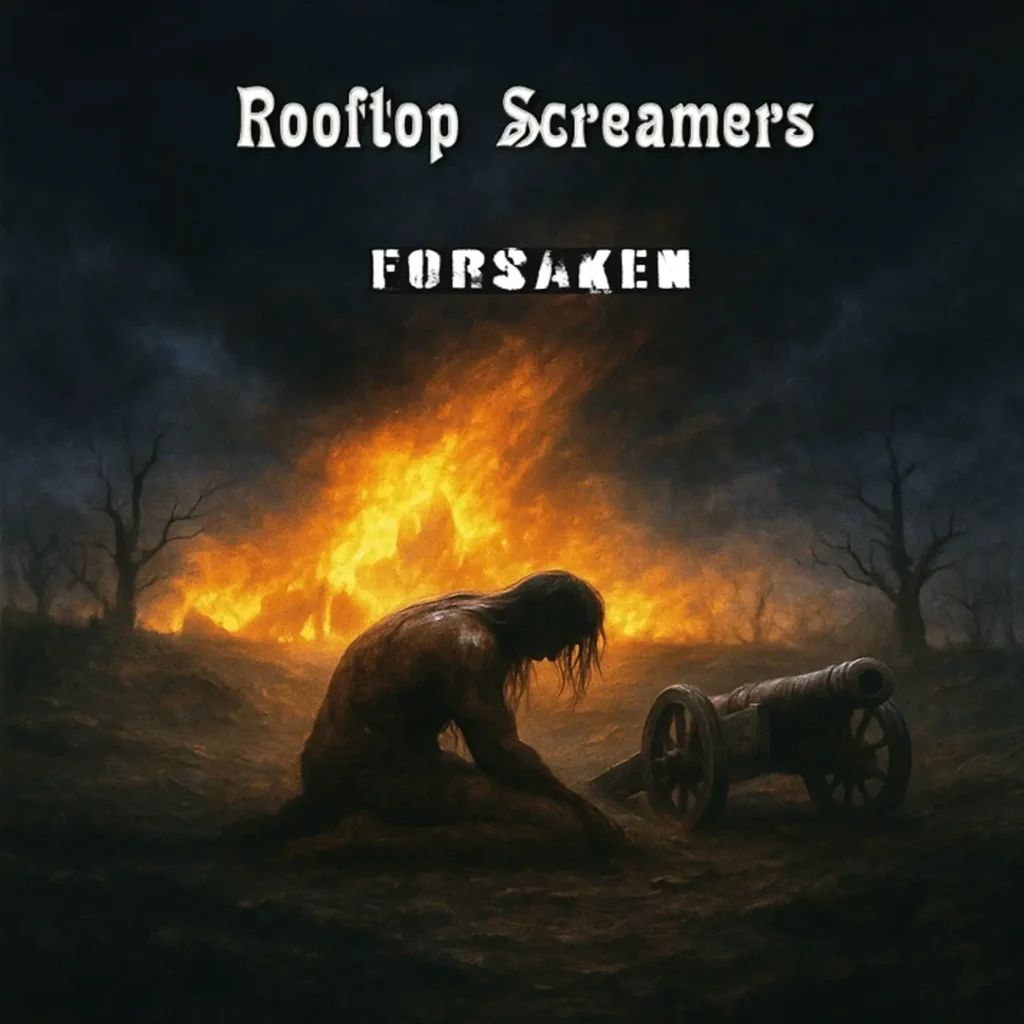
A tenured media critic known working as a ghost writer, freelance critic for publications in the US and former lead writer of Atop The Treehouse. Reviews music, film and TV shows for media aggregators.

Here’s the thing about “Forsaken”: it’s not content to just exist as another riff-heavy alt-rock track. It feels like it’s arguing with itself; a slow-motion collapse disguised as a song. Rooftop Screamers, the ongoing project of Portland veteran Mike Collins, has always been a space for collaboration, but here, with Stephen McSwain on vocals, Collins turns the project into something more elemental: a cinematic descent that balances precision with chaos.
“Forsaken” is the kind of song that sounds like it was built in a thunderstorm. Every instrument has weight; guitars sludgy enough to pull at the earth, drums crisp enough to slice through the fog. You can hear the ghosts of early Muse, the brooding textures of Deftones, maybe even the sprawling melancholy of Steven Wilson, but it’s never just imitation. Collins is too seasoned for that. He’s been around long enough to know how to steal properly: take what resonates, dismantle it, and rebuild it into something sharp and personal.
McSwain’s vocals do most of the heavy emotional lifting, threading vulnerability through the song’s mechanical grind. He doesn’t scream; he pleads, and that makes the song hit harder. There’s this incredible tension between the performance and the production, as if the singer’s humanity is trying to claw its way out of the mix. The riffs loop like a mantra, each return heavier than the last, as if the song is chewing on its own tail and liking the taste.
And then there’s Collins’s drumming; a reminder that restraint is a form of power. He doesn’t play like someone showing off chops; he plays like someone who understands narrative. Every hit feels like punctuation, guiding the song’s anxiety rather than amplifying it. That kind of control doesn’t come from youth or bravado; it comes from experience, from decades spent behind kits and under lights, learning exactly when to let a song breathe and when to choke it out.
What makes “Forsaken” so fascinating is its sense of scale. It’s only a few minutes long, but it carries the weight of something much bigger like a film score, a confession, maybe even an exorcism. There’s a cinematic grandeur to the way the guitars hang in the air, the way the vocals sound like they’re echoing down a steel corridor. It’s the sound of someone trying to find beauty in ruin, and somehow succeeding.
In a lesser artist’s hands, this would’ve been a solid genre exercise; the kind of “dark rock” track that politely gestures at emotion while playing it safe. But Collins doesn’t do polite. He’s been collaborating with legends for years and “Forsaken” feels like him channeling all that history into something lean, deliberate, and alive. It’s heavy music for people who understand silence.
By the end, when the final chord fades, you’re not entirely sure if the song resolved anything, but that’s the point. “Forsaken” isn’t about closure. It’s about the tension of almost breaking free. And in that tension, Rooftop Screamers find something rare: rock music that feels cinematic without feeling fake, emotional without wallowing, and timeless without nostalgia.

A tenured media critic known working as a ghost writer, freelance critic for publications in the US and former lead writer of Atop The Treehouse. Reviews music, film and TV shows for media aggregators.